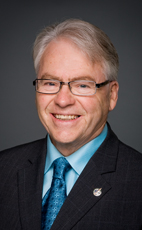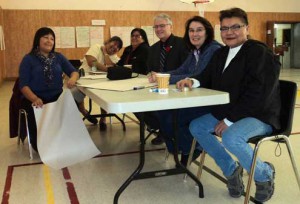 THUNDER BAY – LEADERS LEDGER – I was honoured when the voters of Thunder Bay-Superior North chose me to be their voice in the House of Commons. I committed to them: to be honest, open and accessible, and to keep my campaign promises. Despite wide life experience with dozens of organizations, none was as dysfunctional as Parliament.
THUNDER BAY – LEADERS LEDGER – I was honoured when the voters of Thunder Bay-Superior North chose me to be their voice in the House of Commons. I committed to them: to be honest, open and accessible, and to keep my campaign promises. Despite wide life experience with dozens of organizations, none was as dysfunctional as Parliament.
I have much respect for most Members in the House of Commons. But our three main parties require lockstep discipline, with little room for meaningful public debate or for putting constituents ahead of party politics.
Fueled by a flawed and antiquated electoral system where 39 per cent of the vote can gain 100 per cent of the power, the main parties are mired in a win-lose battlefield mentality.
Instead of co-operation and compromise, our voters see mindless solidarity where political parties are always right and they are always wrong. So I have decided to sit as an Independent Member of Parliament. I did not make this decision quickly or easily.

And I mean it.
When John A. Macdonald became Canada’s first prime minister, one of his biggest challenges was getting agreement from his caucus. In those days, and for a century thereafter, candidates were selected by their riding associations. Period. Their name was on the ballot without the name of the party. Voters actually had to know who they were, what party the belonged to, and what they stood for. They worked for the people who nominated them and the people who elected them. And the leader of their party worked for them.
In the 1960s, the ballots were changed to include the party name alongside the candidates. The bureaucrats were concerned that some interloper might claim to represent a party, so they changed the rules so that the national party leader had to sign and approve the nomination of all candidates running for their party.
It could have been just as easy (and in my mind better) to have the riding president do that, but in one fell swoop the national leaders had a sword of Damocles to hold over every MP. And they use it. Pierre Trudeau described his own backbenchers as mere “trained seals.”
Now leaders rule with iron fists. We are told daily what to say, when to say it, and how to vote.
Mr. Mulcair has now made it clear he will bring back the long-gun registry and will use the whip. This flies in the face of both current NDP policy and my commitment to constituents.
Another example is how parties are hopelessly locked to polar positions on climate change, making compromise to achieve even piecemeal progress impossible. And parties rarely, if ever, co-operate, with Mr. Mulcair already indicating he is unwilling to co-operate with other parties. This does not serve voters well.
Most MPs work hard and sincerely want to do the best for their country and citizens. There are two things that keep them in line: party discipline and nice perks. Travel around the world. Infinite supplies of wine and Camembert. Good paycheques. Pensions that are a whole lot better than the average Canadian’s.
After over three years of trying to work within this flawed system, I have some ideas on how to make Parliament work better:
- Instead of sitting us in hockey benches waiting for the coach to send us over the boards, randomize us so that we are more likely treat the fellow MP sitting next to us from a different party with respect;
- Have the riding president sign our nomination papers, rather than the leader. Or better still; go back to having just the candidate names on the ballot;
- After each election, have the elected MPs from each party select (or re-confirm) their leader, as in Great Britain. The party president would be elected by all party members and the caucus leader selected by the caucus;
- Reform our electoral system so that when a party gets 39 per cent of the vote, they get 39 per cent of the seats (as in most of the world’s democracies) and will learn how to co-operate and compromise. I am committed to working to reform our outdated and undemocratic electoral system.
I know that my decision to be an independent voice will disappoint or even anger some voters who believe that a person elected as an NDP candidate should stick with the party, no matter what. I will also acknowledge that the procedures in the House are heavily weighted in favour of the parties, and especially the first two parties.
Nevertheless, I believe I can better represent my constituents with an independent voice.
For now, I will focus on doing what I have worked hard to do for over three years: Help the people being mistreated by CRA or EI. Work with all parties or MPs when possible to make Parliament work. Speak up inside and outside the House for issues important for our region, and Canada.
Bruce Hyer MP
Thunder Bay Superior North
